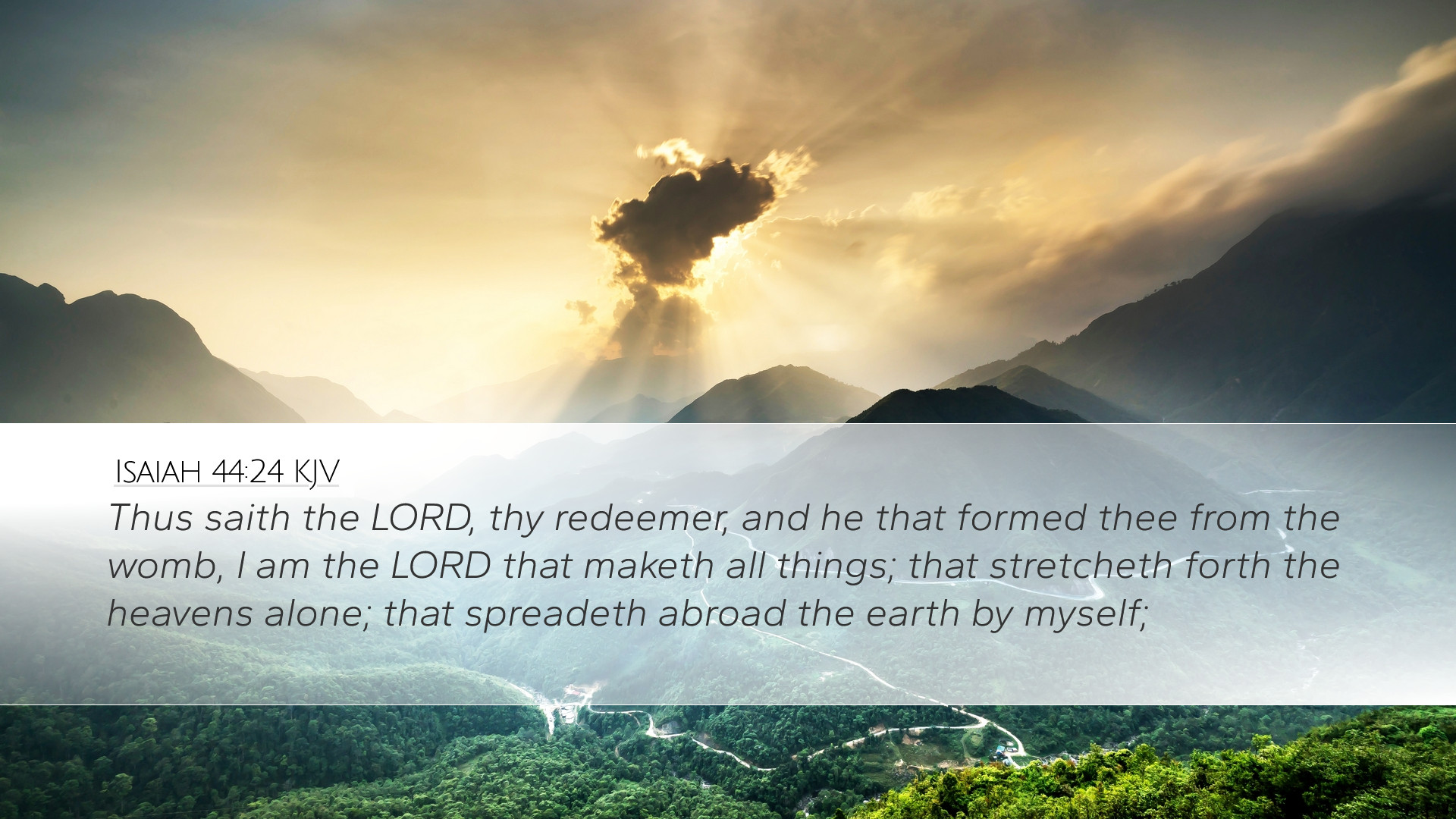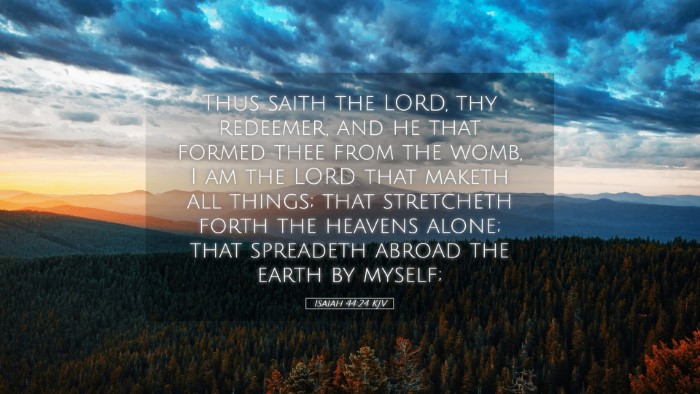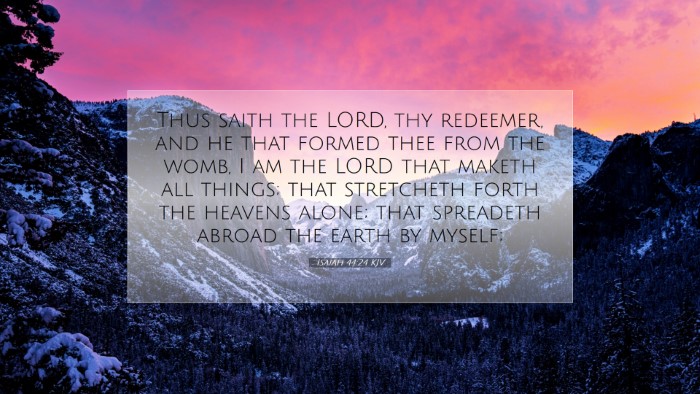Commentary on Isaiah 44:24
Isaiah 44:24 states, "Thus saith the LORD, thy redeemer, and he that formed thee from the womb, I am the LORD that maketh all things; that stretcheth forth the heavens alone; that spreadeth abroad the earth by myself."
Contextual Overview
This passage belongs to a section of Isaiah where God is asserting His sovereignty and preeminence in creation, emphasizing His role as both creator and redeemer. The backdrop of this chapter largely revolves around the themes of false idol worship contrasted with the true worship of the Almighty God.
Theological Insights
-
The Lord as Redeemer: Calvin touches on the significance of God identifying Himself as the redeemer. The title implies more than just salvation; it indicates a relational aspect, where God actively works to rescue His people from their troubles.
-
The Nature of Creation: The declaration of God as the one who "maketh all things" finds affirmation in traditional Jewish understanding that God not only created the heavens and the earth but continues to preside over His creation. Clarke remarks that this establishes God's deep involvement and authority over creation.
-
Divine Authority: The phrase "that stretcheth forth the heavens alone" encapsulates God's solitary power. Scholars like Barnes emphasize that this indicates there is no partner in God's work, underlining His absolute sovereignty and uniqueness.
Commentary Highlights
Matthew Henry's Perspective
Henry underscores the comforting nature of God’s declaration. He notes that this assertion ought to establish the confidence of God’s people amid uncertainty. By reminding them of His role as creator, it encourages the faithful to trust in His providence.
Albert Barnes' Interpretation
Barnes emphasizes the implications of this verse for both worship and spirituality. He posits that recognizing God’s creative power leads believers to a profound sense of reverence and reliance. He also suggests that the mention of forming from the womb serves as a reminder of God’s intimate involvement in human life.
Adam Clarke's Insights
Clarke provides a detailed analysis of the original Hebrew text, asserting that God's act of creation is not merely historical but ongoing. He highlights the relational aspect of God's being as the redeemer, drawing parallels between creation and salvation as acts of divine grace.
Practical Applications
- Affirming Faith: For pastors, this verse serves as a substantial anchor when discussing the themes of creation and redemption. It can help believers understand the holistic nature of God's work in both history and personal lives.
- Encouragement in Times of Struggle: This passage reassures students and laypeople alike that God is actively engaged in their lives, providing hope and assurance in times of need.
- Worship and Reverence: The understanding of God as the sole creator leads to a deeper sense of worship, challenging congregants to reflect on the greatness of God in their worship experiences.
Conclusion
Isaiah 44:24 is a profound declaration of God’s power as the creator and redeemer. It encapsulates foundational themes critical for theology, worship, and pastoral care. By drawing upon the insights of Henry, Barnes, and Clarke, one can appreciate the depth and richness of this verse, establishing a strong theological framework that supports both individual faith and corporate worship.


